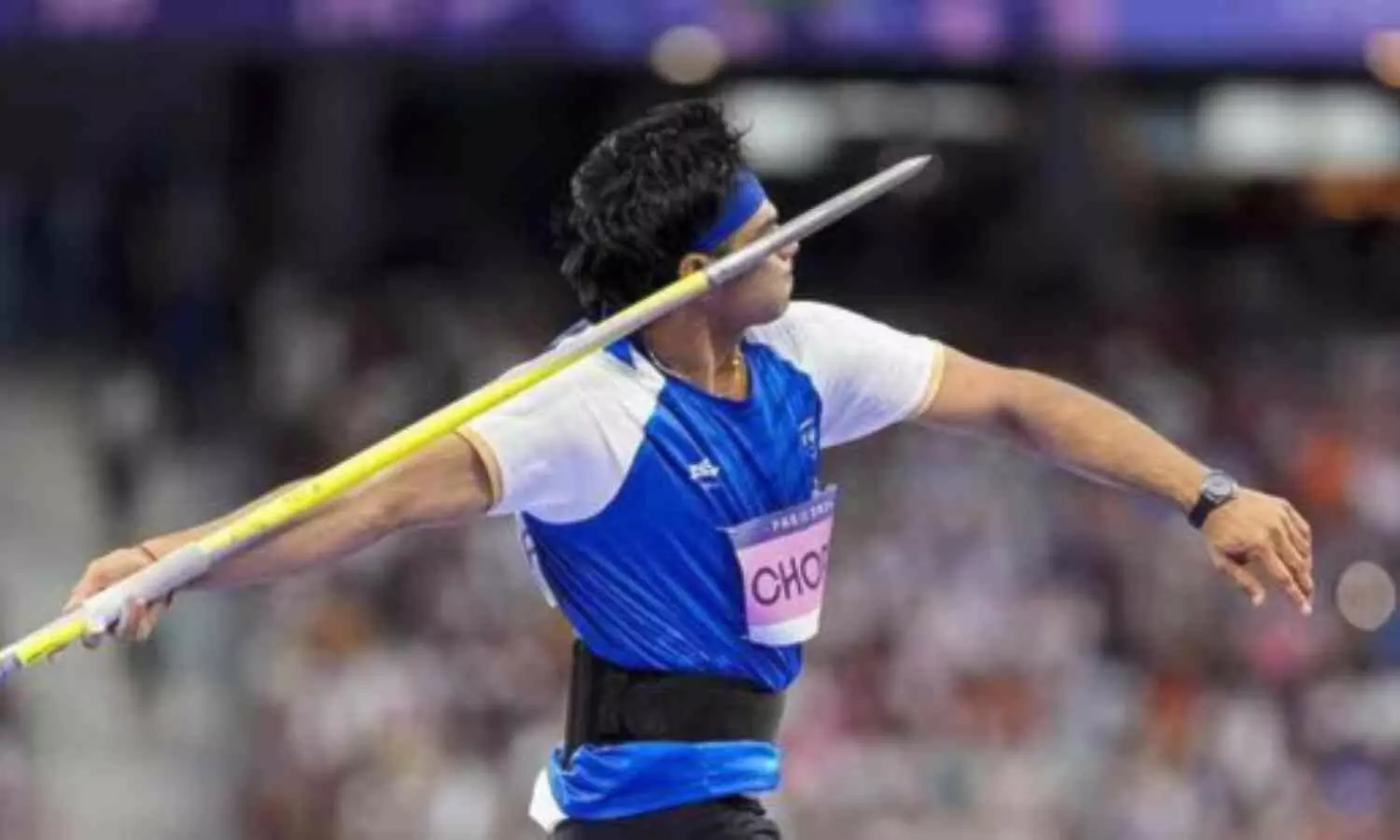All You Need to Know About Neeraj Chopra's Inguinal Hernia Condition

New Delhi: Doctors have noted that an inguinal hernia can significantly impact elite athletes, affecting their performance and requiring careful management. This comes in light of recent reports about Neeraj Chopra dealing with a long-standing inguinal, or groin hernia.
An inguinal hernia occurs when abdominal organs like the omentum or intestine protrude through natural openings that allow testicular vessels and cord structures to pass from the abdomen to the testes.
Neeraj Chopra, an Indian track and field athlete, recently won a Silver medal at the Paris Olympics 2024. His performance in the men’s javelin final was reportedly affected by this condition, resulting in a second-place finish behind Pakistan's Arshad Nadeem.
The 26-year-old javelin star, while speaking to the media, said that he has been suffering from the condition for a long time and threw 89.94m (personal best in 2022) with this injury.
But more than the technique, “almost 50 per cent” of the focus is on “my injury”, he said, adding it is time to undergo proper treatment, as advised previously by the doctors.
“An inguinal hernia occurs when intra-abdominal contents like the intestines protrude through an abnormal weak spot in the abdominal wall, typically in the groin area. This condition is common among athletes like Neeraj Chopra due to the high physical demands of their sport, which can increase intra-abdominal pressure,” Dr Sushruth Shetty, Consultant Gastroenterology, GI Onco and Robotic Surgery, Narayana Health City, Bengaluru, told IANS.
Inguinal hernias can cause discomfort, pain, or a visible bulge in the groin, particularly during activities like lifting, coughing, or exercising.
“For elite athletes, the impact of an inguinal hernia can be significant, affecting performance and requiring careful management,” Dr Shetty said.
Dr. Sandeep Aggarwal, Chairman - Manipal Institute of Minimal Access, Bariatric, GI & Robotic Surgery, Manipal Hospital Dwarka, said that inguinal hernia “occurs as a result of weakening and stretching of these natural openings present in the layers of the groyne region”.
“Inguinal hernia is more common in men. Its prevalence increases with age. Any factor that increases intra-abdominal pressure like chronic constipation, cough, or straining during micturition can be causative factors for the development of inguinal hernia,” he told IANS.
The experts said treatment usually involves surgical repair to prevent complications like intestinal obstruction or strangulation where the blood supply is cut off, leading to a surgical emergency which can even be sometimes life-threatening.
Surgical treatment by minimally invasive techniques such as laparoscopy or robotics results in much lesser pain and early recovery after surgery.
Dr. Shetty said a well-structured rehabilitation programme is also essential for a full recovery, allowing the patients, especially athletes, to return to peak performance while minimising the risk of recurrence.


